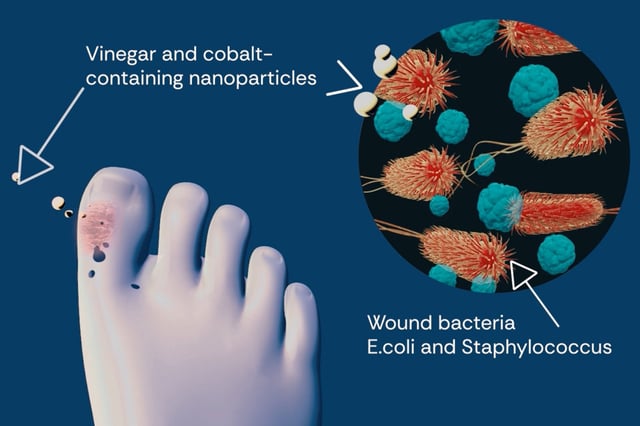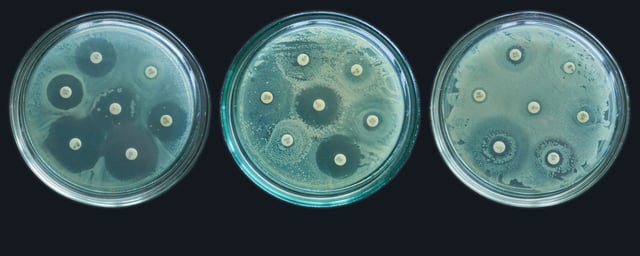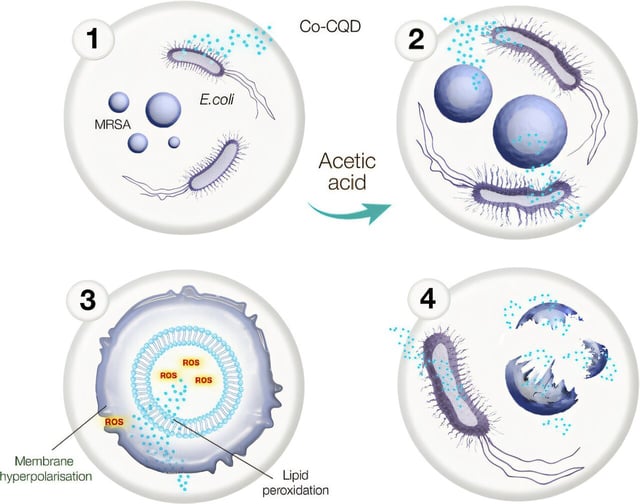Overview
- Researchers from the University of Bergen, QIMR Berghofer and Flinders University combined carbon quantum dots doped with cobalt with weak acetic acid to create a synergistic antimicrobial.
- The formulation using 0.06% acetic acid killed bacterial species not sensitive to vinegar alone, including drug‑resistant Staphylococcus aureus, Escherichia coli and Enterococcus faecalis.
- The acidic environment promotes bacterial uptake of the nanoparticles, and cobalt within the carbon dots generates reactive oxygen species that damage cells inside and on the surface.
- In vitro tests showed no toxicity to human cells, and the treatment cleared infections in mice wounds without slowing healing.
- Authors position the approach as a potential adjunct to antibiotics in the fight against antimicrobial resistance, with further preclinical studies and phased clinical trials required before patient use.


